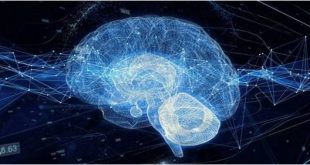Machine learning and AI research, which is now a critical technology in almost every sector and corporation, is just too extensive for anyone to read it all. Perceptron (formerly Deep Science) is a column that seeks to gather and explain some of the most important recent discoveries and articles — particularly in, but not limited to, artificial intelligence — and demonstrate why they matter.
A team of engineers from the University of Glasgow developed “artificial skin” that can learn to feel and react to simulated pain this week in AI. DeepMind researchers created a machine learning system that can anticipate where soccer players would run on a field, while researchers from Tsinghua University and The Chinese University of Hong Kong (CUHK) developed algorithms that can create lifelike images — and even films — of human models.
According to a news release, the Glasgow team’s artificial skin used a new type of processing system based on “synaptic transistors” that mimicked the brain’s neural networks. The transistors were created from zinc-oxide nanowires printed on the surface of flexible plastic and were linked to an electrical resistance sensor on the skin.
READ MORE Next Tech Magazine Get The Latest Technology Updates
Next Tech Magazine Get The Latest Technology Updates







